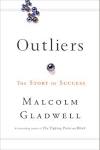 I didn’t perform a data set analysis on Christian Rudder’s Dataclysm, which draws heavily from his work as co-founder of OkCupid (the popular dating website), but I can say one thing for certain: Dataclysm knows nothing about religion. And it’s a shame. Continue reading
I didn’t perform a data set analysis on Christian Rudder’s Dataclysm, which draws heavily from his work as co-founder of OkCupid (the popular dating website), but I can say one thing for certain: Dataclysm knows nothing about religion. And it’s a shame. Continue reading
Category Archives: Society
Technology and the Loss of Memory
The latest research claims that attention spans are getting shorter and shorter, particularly with the advent of modern (online) technology and the increased use of social media among young learners. Against this commonplace, however, consider Robert Southey’s warning to S. T. Coleridge in 1809:
 “I know not whether your subscribers have expected too much from you, but it appears to me that you expect too much from your subscribers; and that, however accurately you may understand the diseases of the age, you have certainly mistaken its temper. In the first place, Sir, your essays are too long. ‘Brevity,’ says a contemporary journalist, ‘ is the humour of the times; a tragedy must not exceed fifteen hundred lines, a fashionable preacher must not trespass above fifteen minutes upon his congregation. We have short waistcoats and short campaigns; everything must be short—except lawsuits, speeches in Parliament, and tax-tables'” (Letters of Robert Southey: A Selection [London, 1912], 170-71).
“I know not whether your subscribers have expected too much from you, but it appears to me that you expect too much from your subscribers; and that, however accurately you may understand the diseases of the age, you have certainly mistaken its temper. In the first place, Sir, your essays are too long. ‘Brevity,’ says a contemporary journalist, ‘ is the humour of the times; a tragedy must not exceed fifteen hundred lines, a fashionable preacher must not trespass above fifteen minutes upon his congregation. We have short waistcoats and short campaigns; everything must be short—except lawsuits, speeches in Parliament, and tax-tables'” (Letters of Robert Southey: A Selection [London, 1912], 170-71).
It’s common to complain that things are “getting worse” (“worse than when?,” we should ask). However, if Southey could confidently relay complaints about 15+ minute sermons and overlong dramas in the early nineteenth-century, perhaps attention spans haven’t changed so much in our world of 140 characters after all.
Devolution of the species seems hardly to blame. We’ve only forgotten what’s past because we’ve stopped paying attention . . . and there’s nothing new about that.
Gazing at “Royal Bodies”: On Kings, Queens, and Country Stars
 Hilary Mantel’s recent London Review of Books lecture “Royal Bodies” challenges the pervasive temptation to transform people into objects of the pervasive public gaze.
Hilary Mantel’s recent London Review of Books lecture “Royal Bodies” challenges the pervasive temptation to transform people into objects of the pervasive public gaze.
Mantel recalls an encounter with the Queen at Buckingham Palace. Everyone avoids her, sweeping aside in her royal presence—except for Mantel, who sees through her in an instant of penetrating vision: “for a moment she had turned back from a figurehead into the young woman she was, before monarchy froze her and made her a thing, a thing which only had meaning when it was exposed, a thing that existed only to be looked at.”
Mantel felt regret in that moment. She wasn’t looking at her, she explains, only the monarchy. Reversing the gaze, Mantel imagines the weary-eyed perspective of the Prince of Wales after yet another public spectacle: “You see that your life is a charade, that the scenery is cardboard, that the paint is peeling, the red carpet fraying, and if you linger you will notice the oily devotion fade from the faces of your subjects, and you will see their retreating backs as they turn up their collars and button their coats and walk away into real life.”
The curiosity to see through others has left once vibrant individuals not as disembodied souls, but de-spirited bodies, subject to the appetite of public interest, devoid of vitality.
 And is this really any different from the consumer culture that surrounds celebrities and professional athletes? Just the other day, famed country musician Mindy McCready took her own life, having battled publicly with addiction and loss for years. Dr. Drew Pinsky, physician and television host, claims she “became so fearful of the stigma and the way people were responding to her being hospitalized that she actually checked herself out prematurely . . . it didn’t have to go down like this.” A royal life, indeed.
And is this really any different from the consumer culture that surrounds celebrities and professional athletes? Just the other day, famed country musician Mindy McCready took her own life, having battled publicly with addiction and loss for years. Dr. Drew Pinsky, physician and television host, claims she “became so fearful of the stigma and the way people were responding to her being hospitalized that she actually checked herself out prematurely . . . it didn’t have to go down like this.” A royal life, indeed.
It doesn’t take tragedy to recognize the slow spiral downwards. Who in the United States hasn’t found the intense media celebration of Michael Jordan’s fiftieth birthday just a bit uncomfortable? So much attention to a man . . . was he the greatest player ever? Could he still play on an NBA team today? But stop and think for a moment: Would anyone be surprised to discover that Jordan finds the celebration-as-spectacle surrounding his aging body entirely humiliating?
Mantel, ever the artist, closes her lecture with words about kings and queens—and perhaps country singers and athletes, too: “Cheerful curiosity can easily become cruelty. It can easily become fatal. We don’t cut off the heads of royal ladies these days, but we do sacrifice them, and we did memorably drive one to destruction a scant generation ago. History makes fools of us, makes puppets of us, often enough. But it doesn’t have to repeat itself.”
The lesson, for me, is clear: we can still have our heroes, still celebrate our symbols of greatness or beauty or accomplishment. Yet these symbols of power and greatness remain people—bodies and souls and spirit and the muck that makes us fully and fallibly human. Mantel has this much right: “much lies within our control. I’m not asking for censorship. I’m not asking for pious humbug and smarmy reverence. I’m asking us to back off and not be brutes.”
The Key to Success
 Several friends of mine recently told me that I simply must read Malcolm Gladwell’s Outliers: The Story of Success (2008). Some of these friends are business types—they manage money or make lots of it—or both. I’m a college professor, so I suppose they hoped I might be inspired by the book and one day put my talents to better use; make some money, perhaps.
Several friends of mine recently told me that I simply must read Malcolm Gladwell’s Outliers: The Story of Success (2008). Some of these friends are business types—they manage money or make lots of it—or both. I’m a college professor, so I suppose they hoped I might be inspired by the book and one day put my talents to better use; make some money, perhaps.
Gladwell’s Outliers grew out of a search for what sets apart successful people—“outliers” of society whose unusual success breaks the normal patterns of history. Most people, at least in the United States, explain success by looking to individual ability or genius. Gladwell points to the astounding number of self-help books and the genius-mystique surrounding technological trailblazers such as Bill Gates or Steve Jobs. The fascinating success of these “outliers” bolsters the appeal of the American myth of self-reliance.
In fact, Gladwell’s Outliers demonstrates what historians have told us all along: success isn’t simply the result of talent, self-determination, or genius alone. Success depends on context, community, and “coincidence.” Gladwell repeats a refrain throughout his book: some individuals “just happened” to have the right opportunities at the right time (whether the birth month of Canadian hockey players or unparalleled access to mainframe computers among up-and-coming techies in the 1960s and 1970s).
Gladwell’s idea got me thinking about some modern examples from literary and religious history. Many could be mentioned, but here’s just one: The English World War I poet Wilfred Owen had the tools for writing great poetry from early in his life, but his “success” derived from more than inspired vision. Poet-soldiers such as Owen, writing amidst destruction and death during the Great War, moved to the forefront of early twentieth-century literature because their writings gave voice to profound suffering and doubt around them, within them:
Dim, through the misty panes and thick green light,
As under a green sea, I saw him drowning. (from “Dulce et Decorum Est”)
Owen also depended on community: especially the influence of literary mentors such as Siegfried Sassoon.
Owen’s story—an outlier in the history of literature—challenges popular notions of success. He didn’t strike it rich through his poems. He “just happened” to die in the war. That’s hardly the stuff of success, and not the kind of thing you’ll find recommended in the self-help section of the bookstore. But in the case of a poet writing about suffering in the “war to end all wars,” death built a legacy to complement profound poetic achievement.
In truth, Gladwell’s Outliers illustrates, for those seeking fame and fortune through business, what any student of history already knows: the community shapes the individual, context is everything, and there’s really no such thing as coincidence. Of course, history also reveals what most books on success willfully choose to forget: there’s more to success than can be measured in the course of a lifetime.
(With thanks to my friends Bryant, James, Ted, and Doug.)
Christianity and Violence
The United States faces a unique problem: unparalleled violence among developed nations. While American Christians widely repudiate violence, the slaughter of innocents, and the abuse of power, many also assert the inviolability of individual rights involving potentially violent acts—especially regarding restrictions on assault weapons. No small part of the varied Christian responses to violence stems from cultural location. Traditions (even, or perhaps especially, political ones) shape Christian self-understanding.
This raises a fundamental question: How can Christians initiate change in the American culture of violence when so many Christians are unable to agree on the nature of the problem?
Consider Jacques Ellul’s provocative assessment of American history in Violence: Reflections from a Christian Perspective (New York, 1969):
“Americans have it that the Civil War was an accidental interruption of what was practically an idyllic state of affairs; actually, that war simply tore the veil off reality for a moment . . . Tocqueville saw the facts clearly. He indicated all the factors showing that the United States was in a situation of violence which, he predicted, would worsen. As a matter of fact, a tradition of violence is discernible throughout United States history—perhaps because it is a young nation, perhaps because it plunged into the industrial age without preparation. (This tradition, incidentally, explains the popularity of violence in the movies.) And it seems that the harsher and more violent the reality was, the more forcefully were moralism and idealism affirmed” (88–89).
Ellul traces the American culture of violence not to slavery or the civil war, but “the slow, sanctimonious extermination” of Native Americans, the competitive methods of capitalism, and the annexation of land in Texas and California. “All this,” he explains, “and much besides show that the United States has always been ridden by violence, though the truth was covered over by a legalistic ideology and a moralistic Christianity” (88).
Violence permeates the fabric of American culture. The problem, however, as recent events have shown, is not a matter of international war or the abuse of governmental authority alone. Many Christians, far from denouncing the culture of violence, willingly embrace the principle of “an eye for an eye” as the solution to the problem. Instead of repudiating the culture of violence, we often assert an illusory notion of individualism and justice based on the primacy of the self.
I am not suggesting that there is no place for national defense, local government, or individual participation in the political sphere. American sports involve violence, too, and I remain uncertain how to assess that aspect of the larger problem. The task, in short, is immense.
Let’s be clear: Violence may sometimes be deemed necessary, but it is certainly not a Christian value. Violence stands outside of the freedom found in Jesus Christ—the one who bore the violence of the world for our redemption. Violence is marked by fear, doubt, and unbelief. Violence reminds us of the brokenness of our world. Violence demands repentance.
Christians must challenge the churches to reexamine pervasive cultural assumptions. The causes of violence in American society are undoubtedly complex, and it is tempting to assert that there is no viable solution to the problem. Christians will continue to disagree on the best political methods to curb violence in our nation, but the ability to see the face of violence in our nation requires courage acquired “through faith and hope in Jesus Christ” (Ellul, 91).
American Christians must find the courage to reject the instinctual appeal to violence. Violence belongs to the Fall, to the curse of sin, and to a world separated from God. While perfect peace belongs to the eschaton, Christians who follow in the path of Christ must discover—through fellowship and proclamation—the promised hope found in Christ.
The culture of violence in America will not change in a moment, a decade, or even, perhaps, in a lifetime. Christians are called to lead their communities in acts of reconciliation, even at the expense of self-interest and the risk of individual well-being. Those who profess to follow the way of Jesus Christ ought to renounce the temptation to take up any other means to solve those ills that face us, and determine instead to know only love in word and deed until “they shall beat their swords into plowshares, and their spears into pruning-hooks; nation shall not lift up sword against nation, neither shall they learn war anymore” (Isa. 2:4).

